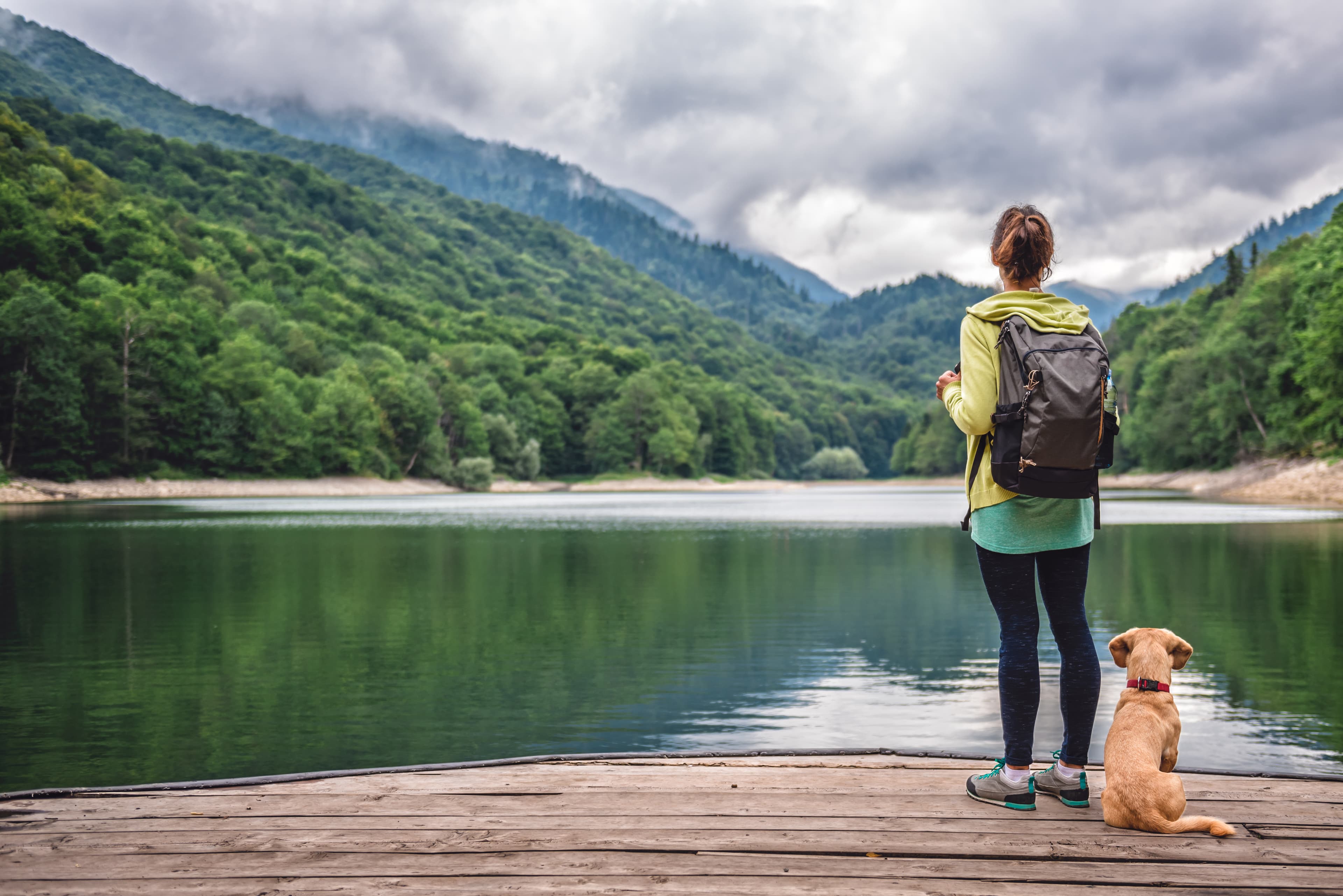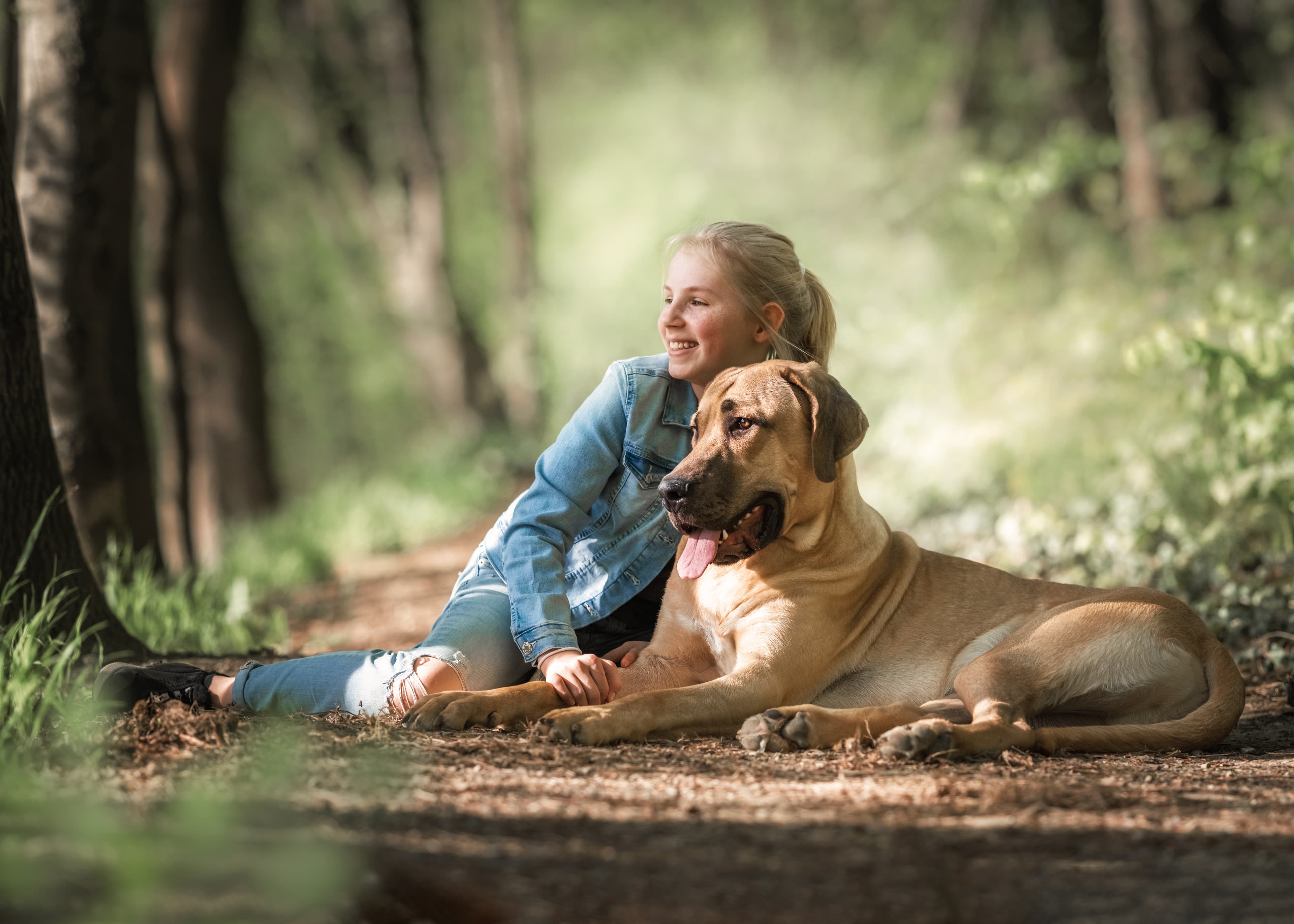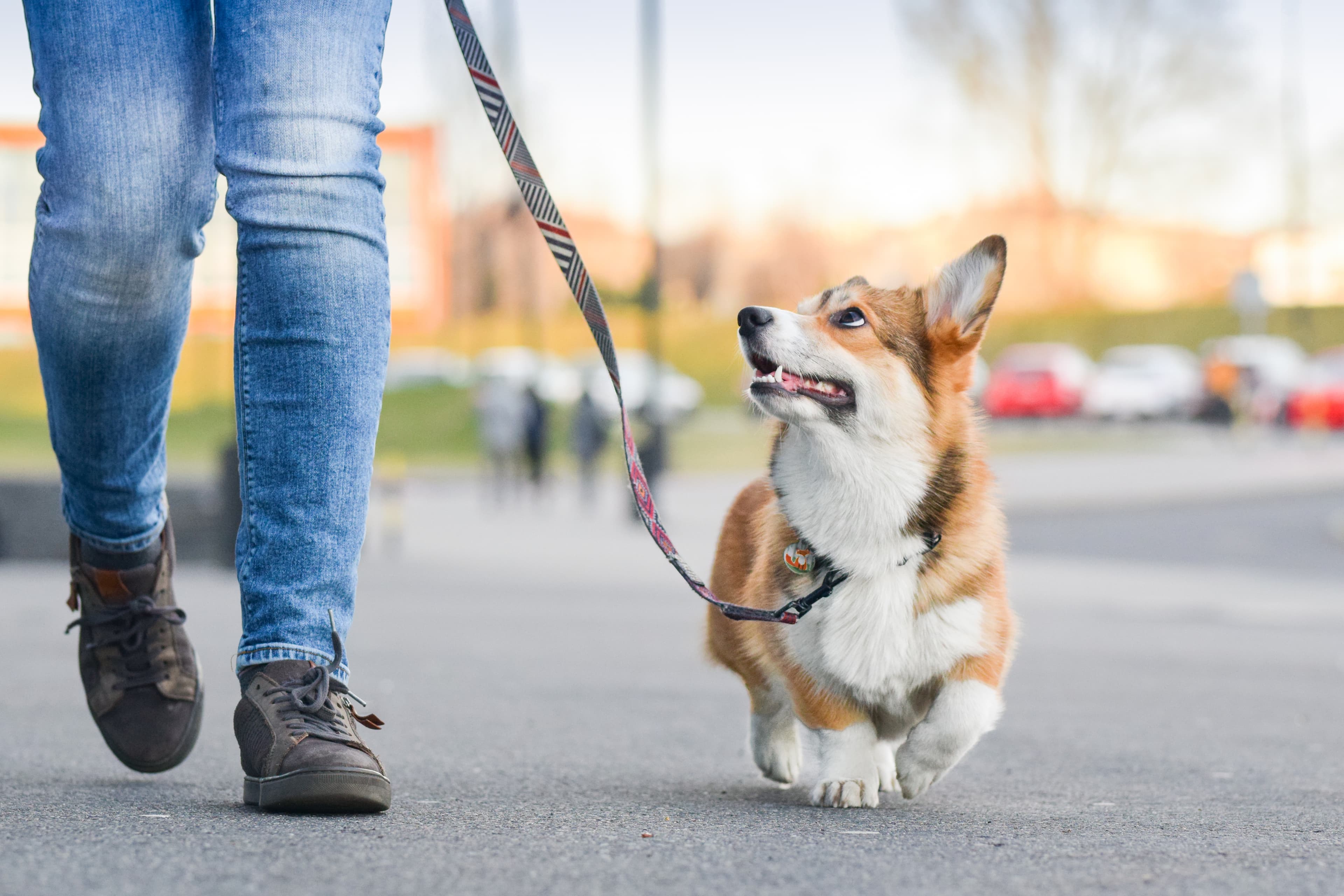Hiking with your dog
Taking your dog mountain hiking has become a popular activity and dogs love it! We want to give you some tips for the trip and what you should consider to make sure your best friend has a great experience in the mountains!
Training for hiking starts at home
All dogs and breeds can hike. But it's still important to create the right conditions for your dog to cope with the trip you're planning. If you're going on a multi-day trip, it's a good idea to gradually build up your dog's fitness, coordination, and recovery before the trip. Slowly increase the distance to reach the daily distance you plan to hike each day. It can also be good to walk in hilly terrain, such as the middle of the woods, to train your dog's coordination. This is all about teaching the dog to deal with different types of ground and get a good balance.
Recovery is just as important as activity, if not more so. On a mountain hike, it's hugely important that your dog can rest when you do. Therefore, teach your dog well before departure to sit down in the forest, meaning rest. Sit down on a stump during your walks and ignore your dog. Advantageously, keep them on a lead so they learn that this situation is solely for recovery.
Plan and pack for a dog-friendly hike
Plan your walk carefully and take your dog into account. Explore what obstacles you may encounter during the walk and if there is anything that will be difficult for your dog. For example, a suspension bridge, very rocky ground, or having to wade through water.
It's not always easy to know what to pack for your dog on a mountain hike. Below you can check out our packing list:
Both a collar and a harness to vary for need/load
An extendable lead to allow more room for the dog to walk and sniff
A dog blanket, as the weather can change quickly in the mountains and it can get cold at night
A towel to dry paws before it's time to go into the tent/cabin
Something for the dog to lie down and rest on
A water and food bowl
Plan for your dog to eat about 150-200% more food during a mountain hike. It is therefore a good idea to feed them at several points during the day to help the dog maintain energy levels, so don't increase portion sizes at any one meal. It is important that the dog drinks water. Flavour the water if the dog finds it difficult to drink during the trip.
Camping with your dog
Most dogs love to camp, but it is of course a matter of habit. If your dog has never camped before, it may be a good idea to pitch the tent somewhere at home to get them used to both the sounds and the surface. The dog can either sleep inside the tent with you, in the vestibule, or outside. If your dog sleeps in the tent or outside, it's a good idea to prepare with mosquito repellent, ensure you can attach the lead securely, and have a lead that cannot be chewed through.
First aid for dogs
Paws wear out on rocky surfaces, especially for dogs not used to the terrain. It may be useful to bring socks or shoes for the dog to wear on parts where the ground is hard/stony. Always keep an eye on your dog's paws during the walk and apply a moisturiser if you see they're getting sore.
In addition to paw care, it's a good idea to have a proper first aid kit tailored to your dog in your backpack. Below is a list of what we think you should have with you:
Saline solution
Anti-bacterial compress
Clean plastic gloves
Self-adhesive wrap
Surgical tape
Antibacterial and antiseptic ointment
Scissors and tweezers
Thermometer
Plan carefully for your mountain trip and you'll have a fantastic experience together!






